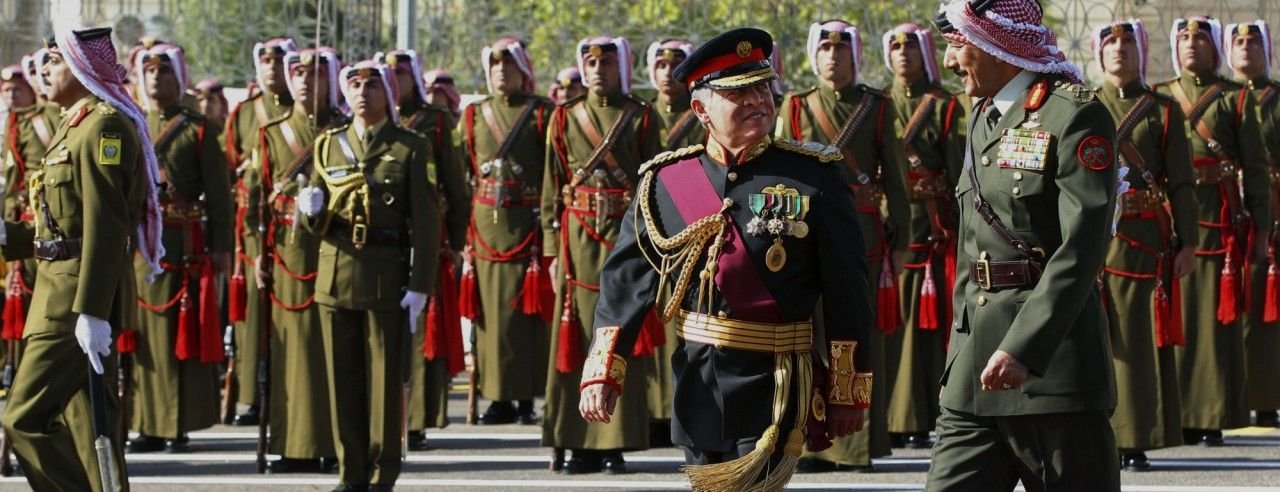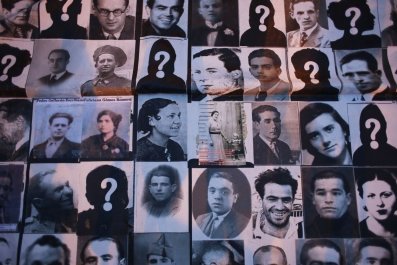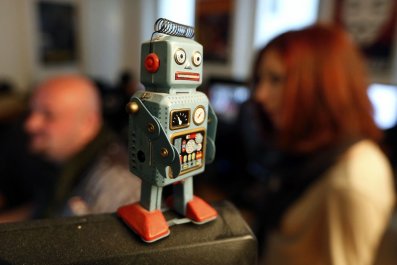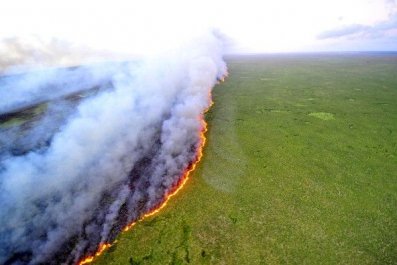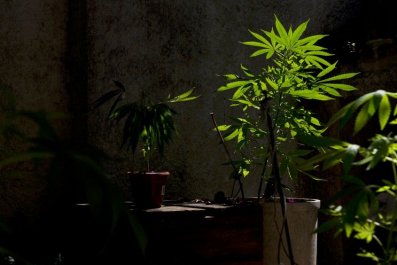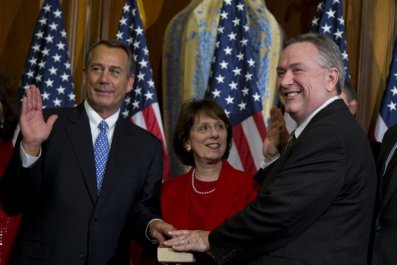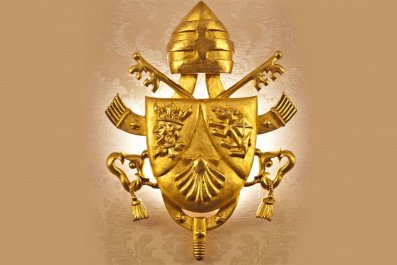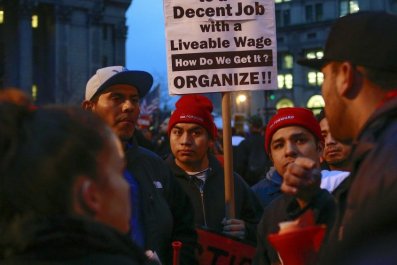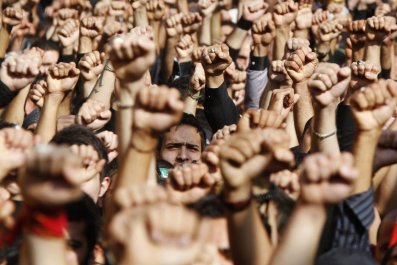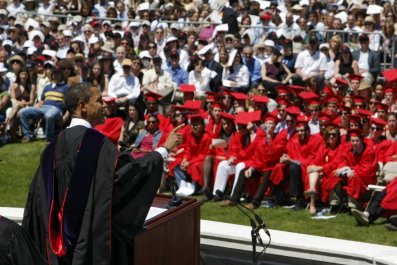Last week, the United Nations Security Council put the tiny kingdom of Jordan center stage in its efforts to bring peace to the Middle East.
It elected Jordan as one of its nonpermanent members, granting the small nation at the epicenter of the troubled region a key role in dispatching missions, appointing special envoys, imposing sanctions, and issuing ceasefires. The move is significant during this highly volatile time.
Jordan, which has always had cordial relations with the five permanent members of the council - the United Kingdom, France, China, Russia, and the United States - will take up its new role as President of the Security Council, starting in January.
The election of Jordan did not come as a surprise. After Saudi Arabia refused to accept the seat in October, Jordan - often considered a more flexible country - was seamlessly in line for the role.
"Jordan is friends with Saudi Arabia and Egypt, the regional heavyweights, and it is easier to handle than a more controversial country like Kuwait," says one Amman-based analyst, Labib Kamhawi.
In a letter to the U.N., Saudi Arabia cited several reasons for its refusal to accept a place on the Security Council, including that body's lack of progress on securing a better deal in Palestine, on a nuclear-free Middle East, and on calming the civil war in Syria. Saudi Arabia, which recently became a member of the U.N. Human Rights Council for the next three years, fully backed Jordan taking on the role it had declined.
Jordan has served twice on the Security Council - from 1965 to 1966 and again from 1982 to 1983 - but this time it is undoubtedly stepping up at a critical time in the Middle East. The kingdom - ruled by the Hashemite family and led by King Abdullah II - is perennially threatened by conflicts on its doorstep spilling over into its territory and the dangers of becoming embroiled in a war not of its making are even greater than ever.
Syria is in total blood-soaked meltdown. Iraq's sectarian conflict is reigniting. And the Israelis are exerting ever-increasing pressure on the Palestinians, which might result in a third intifada (uprising). Jordan, as usual, is caught in the middle.
In Amman, feelings are mixed. The country is battling high unemployment - unofficial figures soar as high as 30 percent, and there is a malaise among the young, educated classes who cannot find a job of any kind - and more people are worried about domestic issues, such as rising food, electricity, and gas prices, than the life-and-death international issues that surround them.
While many see the Security Council seat as prestige for such a small country, Jordanians are aware that it carries burdensome responsibilities. That Jordan was more or less elected by default also makes the appointment bittersweet.
Kamhawi, who supports the Jordanian opposition against the monarchy, is concerned his country will have to bear the burden that other countries have shirked and respond to their international needs rather than voting for what is best for the Jordanian people.
"Jordan will be expected to vote on many issues in a certain manner, a nice diplomatic way," he said. "It's probably why Saudi [also] declined the appointment."
Kamhawi cites, for example, the recent "arrangements" between Iran and the West to handle the ongoing negotiations about Iran's nuclear ambitions.
"Jordan is going to be expected to vote [for] the agreement," he says. "Saudi never would have gone along with that."
As the only Arab member of the Security Council, Jordan will be expected to push the Arab line to some extent, particularly when dealing with issues like Jerusalem and the West Bank. Getting this right will not be easy.
Despite Secretary of State John Kerry's recent claims to "optimism" after shuttling between Jerusalem and Ramallah, saying, "I believe that we are closer to a peace agreement than ever before," the plight of Palestinians in the Israeli-occupied territories remains desperate.
"Jordan is worried that the Israeli government has no intention of making a serious effort to reach a peace agreement with the Palestinians," said one senior U.N. official who has worked in the region for many years.
But some see election to the council as a chance for Jordan to be a bigger player on the diplomatic stage.
Jordan's U.N. representative, Prince Zeid Bin Ra'ad, views the Security Council seat as a valuable opportunity for the kingdom to become more involved in regional and world issues. He believes 20 percent of the Security Council's work in the coming period will focus on Arab concerns.
"We believe that we will bring the Security Council experience not just in issues that most concern us in the Middle East, [but also] with issues we have shown real leadership," he says.
Ra'ad is a popular diplomat, recognized by many as "one of those who has the greatest understanding of the U.N. as an organization - its role, history, potential, weaknesses," said one senior United Nations official. "No other ambassador to the U.N. has a comparable grasp of all that. In that sense, Jordan - and Ra'ad - is a welcome development."
But far away from U.N. headquarters in New York, Jordan is suffering, and not just from chronic unemployment.
The country has virtually no natural resources of its own. Moreover, the refugee burden resulting from the war raging next door in Syria has sent 600,000 displaced people across the border, with the Al Za'atari camp now billed as Jordan's fourth largest city.
The influx of refugees has also brought about a new wave of corruption. Concern exists about the syphoning of funds for refugees into the pockets of the unscrupulous.
"Where does the money go?" asked one Jordanian journalist. "There is a serious discussion about the cost of feeding [the Syrian refugees]."
But the abiding concern of the Jordanian monarchy is the enormous number of Palestinians who have taken refuge from neighboring Israel and who comprise more than half the total Jordanian population.
There remains tension among the refugees who fled the 1948 Nakba (catastrophe in Arabic) - in which they lost their territory and sovereignty to the new Jewish state, Israel - and the wars of 1967 and 1973 that followed.
The portion of ethnic Palestinians living in Jordan is nearly 60 percent, including Queen Rania, the influential wife of King Abdullah II.
Wars also exist on two of Jordan's borders - Syria to the north and an escalating revival of the Sunni-Shia conflict in Iraq in the east. It is important for Jordan to keep Sunni extremists - such as ISIS and Al-Nusra, who currently operate in Syria - out of its kingdom.
The Hashemite family's main priority is to hold onto power in a region where its neighbors are being challenged and toppled. But the combination of Iraq, Syria, and the Israel-Palestine negotiations threatens to unbalance their tiny country.
It makes for an extremely demanding time to take the Security Council position, but Ra'ad argues that Jordan has found itself at the epicenter of such momentous events before. He points out that Jordan went through tough times in its previous Security Council terms. "Don't forget, Lebanon was in bad shape in 1982," he said. "There was also the Iran-Iraq war."
Neither is Jordan new to the politics of the Security Council, nor of the complex machinations of the U.N., which it joined in 1955. The late King Hussein soon became a key player in the Palestinian issues - as is his son Abdullah II today. Jordan sees the Security Council as crucial to achieving a rapprochement among nations and offers the best hope for peace in the region.
The country's peacekeepers regularly contribute to the blue-bereted U.N. forces around the world and have proved themselves time and again in dangerous and delicate conflicts such as Bosnia (operating in the remote and volatile Knin region), the Ivory Coast, and Sudan.
But Kamhawi - like many Jordanians - argues that Jordan should be more sensitive to the needs of its own people instead of taking on international commitments.
"Life for the average Jordanian is hell," he said. "There is a reason why there has been no Arab Spring in Jordan. In Libya, there was a consensus to remove the regime. In Jordan, people want to reform the regime. So there is an impasse."
"It's a critical time we live in right now," added Ali Shajrawi, a Jordanian university student of politics. "To have the near-consensus support of the international community is a comforting sign. It shows in a way that Jordan's own security is in no real danger."
But shouldn't the Jordanians focus more on their own problems than getting involved in everyone else's?
Shajrawi thinks for a moment. "A solution to the problems on an international level will solve many problems on a domestic level," he said.



